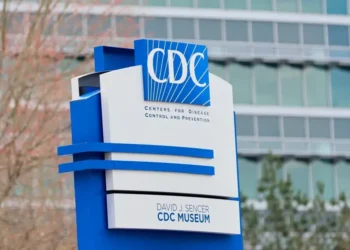Deion Sanders Shares Bladder Cancer Battle as Awareness Grows for a Silent Men’s Disease
Written July 29, 2025, 18:20 EST
NFL Hall of Famer and Colorado Buffaloes head coach Deion Sanders revealed this week that he was recently diagnosed and treated for an aggressive form of bladder cancer. Now recovering after surgery to remove the organ, Sanders says he is cancer-free and preparing to lead his team this fall.
His announcement has brought renewed attention to a disease that affects tens of thousands annually in the United States—particularly men—and underscores the importance of early detection, proper screening, and understanding the symptoms.
Deion Sanders: “It was a fight, but we made it”
The 57-year-old Sanders shared details of his diagnosis during a press conference on Monday. Doctors discovered the cancer after a routine CT scan, which Sanders underwent due to a history of blood clots in his legs.
Following his diagnosis, Sanders underwent surgery to remove his bladder. Surgeons then reconstructed part of his intestine to function as a new bladder—a complex procedure known as neobladder reconstruction.
“It was a fight,” Sanders said, “but we made it.” He added that he feels strong and is staying positive as he returns to coaching duties.
His public disclosure has opened up an important conversation around a form of cancer that often goes unnoticed in its early stages and is still widely misunderstood.
What is bladder cancer?
Bladder cancer develops when abnormal cells in the bladder lining begin to grow uncontrollably, forming tumors. The bladder is the organ that stores urine, and when cancer cells invade its tissue, they can spread to other parts of the body if not detected early.
According to the American Cancer Society, the most common early symptom is blood in the urine, which may make the urine appear pink, orange, or dark red. Notably, this symptom is often painless and may come and go.
Other early signs may include:
- Pain or burning during urination
- Frequent urges to urinate
- A weak urine stream
- Urgency even when the bladder isn’t full
In more advanced stages, symptoms can include:
- Inability to urinate
- Lower back pain on one side
- Bone pain
- Swollen feet
- Loss of appetite or fatigue
It’s important to note that many of these symptoms can also stem from non-cancerous causes, such as infections, kidney stones, or other urological issues. However, blood in the urine should always prompt a medical evaluation.
How common is bladder cancer?
Bladder cancer is one of the most common cancers among men, although it affects people of all genders. The American Cancer Society projects nearly 85,000 new U.S. cases in 2025, with over 65,000 expected in men.
This makes it the 10th leading cause of cancer death in the United States, though death rates have remained relatively stable, declining by about 1% per year since 2013.
The overall incidence rate has also been dropping slowly—also by 1% annually in recent years—thanks in part to lower smoking rates.
Who is at risk?
Smoking remains the leading risk factor for bladder cancer. Smokers are at least three times more likely to develop the disease compared to non-smokers.
Other significant risk factors include:
- Occupational exposure to certain chemicals, especially in industries such as metal work, textiles, rubber, leather, painting, and firefighting
- Chronic bladder inflammation or long-term catheter use
- Age and gender (most cases occur in older adults, and men are at higher risk than women)
- Family history and certain genetic mutations
Reducing exposure to tobacco and hazardous chemicals significantly lowers risk.
What is the prognosis for bladder cancer patients?
Outcomes for bladder cancer patients depend largely on how early the disease is detected and whether it has spread.
- If the cancer is localized (confined to the bladder), the 5-year survival rate is between 72% and 97%
- If it has spread to nearby lymph nodes or tissues, the survival rate drops to about 40%
- For distant spread (metastasis), the rate falls sharply to about 9%
Treatment options vary depending on the cancer stage and may include:
- Surgery to remove tumors or the bladder (partial or total cystectomy)
- Radiation therapy
- Chemotherapy
- Immunotherapy (using drugs that help the immune system target cancer cells)
- Targeted therapy based on the tumor’s genetic profile
For many patients—like Sanders—bladder removal and reconstruction can offer the best chance of a cure, especially when caught early.
Importance of early detection and awareness
Deion Sanders’ experience highlights the value of routine screenings and the importance of not ignoring potential symptoms. His story may help others—especially men over 50—become more proactive in discussing urologic health with their doctors.
Annual checkups, imaging studies (like CT scans or ultrasounds), and urinalysis can help detect abnormalities before symptoms become severe.
Bladder cancer is often treatable when caught early, but its subtle signs make public education vital.
Sanders remains focused on football and health
Despite undergoing major surgery earlier this year, Sanders says he is optimistic and energized about the upcoming football season.
“I’m here, I’m coaching, and I feel strong,” he told reporters. “This is part of life, and I’m thankful for another opportunity to keep going.”
His resilience and openness have already sparked conversations online about men’s health, early cancer detection, and breaking stigmas around talking about urologic issues.
This article was rewritten by JournosNews.com based on verified reporting from trusted sources. The content has been independently reviewed, fact-checked, and edited for accuracy, neutrality, tone, and global readability in accordance with Google News and AdSense standards.
All opinions, quotes, or statements from contributors, experts, or sourced organizations do not necessarily reflect the views of JournosNews.com. JournosNews.com maintains full editorial independence from any external funders, sponsors, or organizations.
Stay informed with JournosNews.com — your trusted source for verified global reporting and in-depth analysis. Follow us on Google News, BlueSky, and X for real-time updates.














